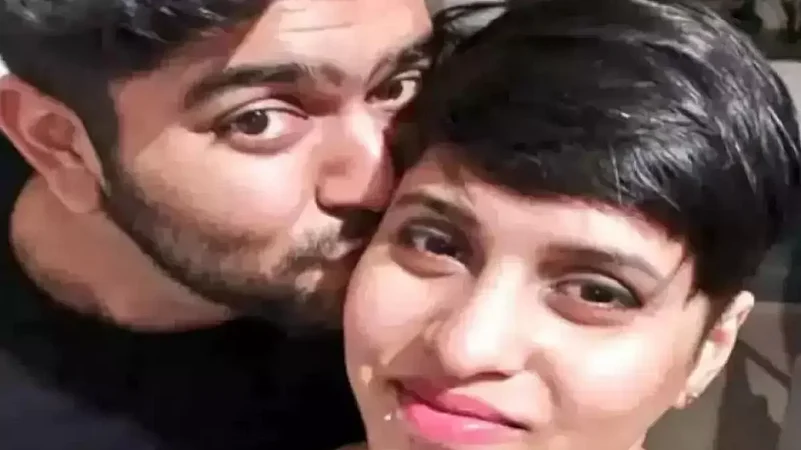A court in New Delhi restrained a television news channel on Monday from utilising in any form any material related to the FIR registered in the Shraddha Walkar murder case.
According to the chargesheet filed in the case, accused Aaftab Amin Poonawala allegedly strangled his live-in partner, Walkar, on May 18 last year and sawed her body into several pieces, which he kept in a refrigerator for almost three weeks at his residence in south Delhi's Mehrauli.
The link court of Additional Sessions Judge Rakesh Kumar Singh was hearing an application moved by the Delhi Police regarding issuing orders to "Aaj Tak" and other media channels not to telecast any material regarding the FIR in the case.
"However, since if an immediate order is not passed, the application itself will be rendered infructuous, this court is of the view that till the next date, the Aaj Tak news channel shall not utilise in any form any material related to the FIR. The matter be taken up on April 17 for a detailed hearing," the judge said.
When Article 21 of the Constitution protects the life and liberty of a person, it also contemplates the protection of the psychological state of mind of such a person. Any dissemination of sensitive information pertaining to a murder case will definitely result in psychological repercussions for the accused and also for the victim's family, the court observed.
The judge said it was brought to the court's notice that "Aaj Tak" is contemplating telecasting certain recordings or transcript of the narco-analysis test and from the Practo app, and the prosecution has claimed that it would not only be damaging for the case, but would also impact the accused and the victim's family.
"They also claim that the law-and-order situation may be disturbed due to the public sentiments involved in the case," the judge said.
Earlier, during the arguments on the charges, the prosecution had played an audio clip from the Practo app through which the accused and the victim had booked a session with a psychologist.
In the clip, Walkar could be heard saying, "Whenever I start ranting about my anger, if he is somewhere around, anywhere in Vasai (near Mumbai), anywhere around me in this ... city, he will find me, he will hunt me down, he will try to kill me, that's ... the problem."
The judge, however, underlined that he was taking a "prima facie view" and a detailed hearing would be given to the parties.
"I am of the view that the application needs to be heard at length not only from the side of the state, but also from the side of the Aaj Tak news channel. For this, let the state serve a copy of the application on the Aaj Tak channel (by the name of the company), which shall be at liberty to file a response," he said.
The judge also noted the submissions made by Chief Public Prosecutor Vinod Sharma and Special Public Prosecutor Amit Prasad that recordings and transcripts have already been made part of the court records and in such circumstances, no party or person can utilise anything related to a court record without the court's permission.
It is already a settled law that a chargesheet is not a public document. Therefore, it cannot be made available for public consumption, the court said.
It said the Delhi High Court Rules envisage that a person unrelated to a case cannot obtain a copy of the judicial proceedings unless there are sufficient reasons to the satisfaction of the court.
"Therefore, if a person or entity has even received anything related to a judicial record in any manner (legal or illegal), he or it cannot be at liberty to utilise the same without obtaining permission from the court," the judge said.
He also said this concept is equally applicable to any party who has received a copy of a judicial record from the court and such a party can utilise the record "only for the purpose for which it was obtained".
The Delhi Police filed a 6,629-page chargesheet in the case on January 24.


























